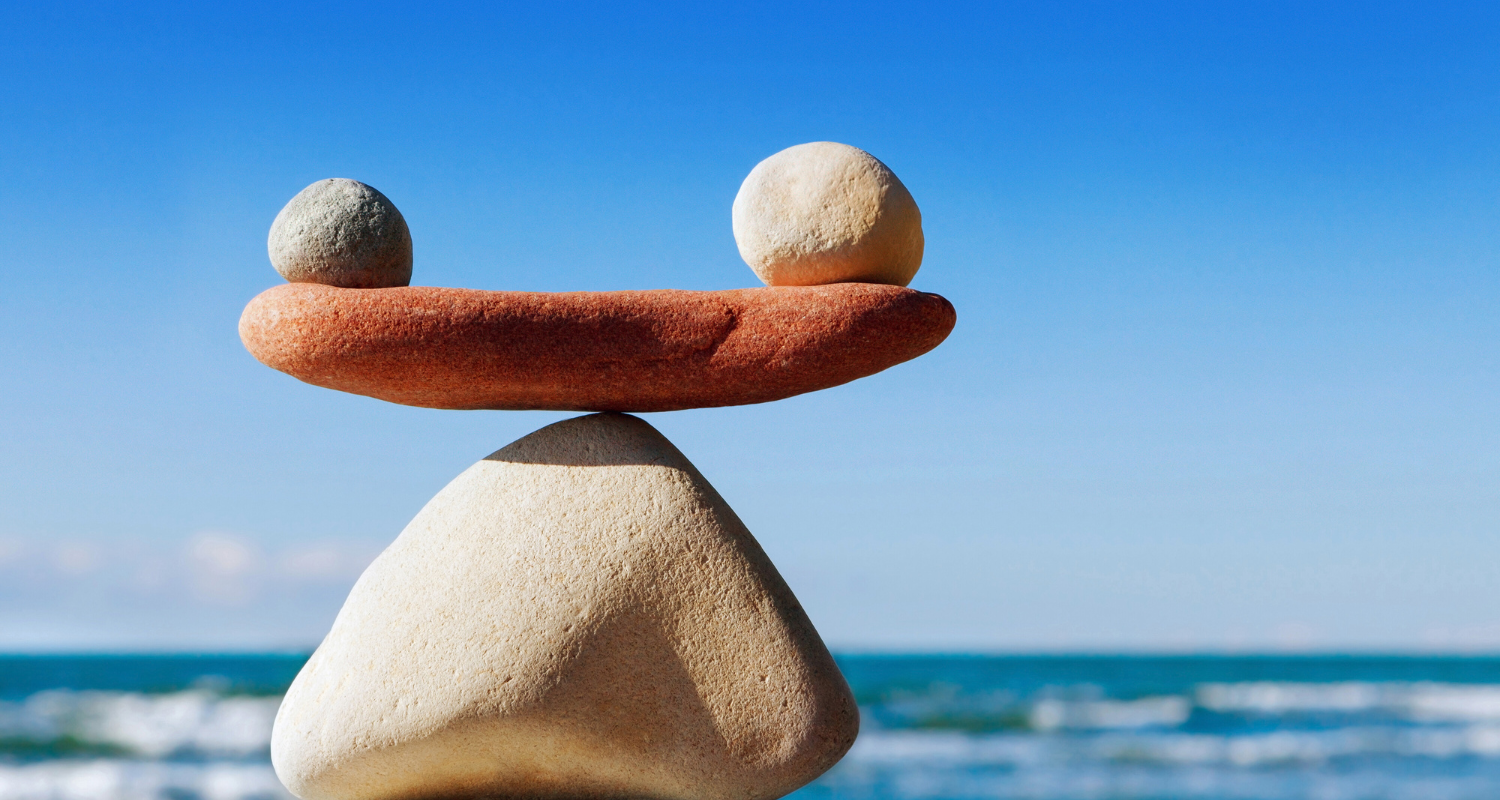Why Emotional Balance is Kinda Important for Women in Canada
Emotional balance isn't just another wellness buzzword that gets thrown around in coffee shops and yoga studios across Vancouver and Toronto. For women navigating the unique pressures of Canadian life—from brutal winter months that test mental resilience to juggling career ambitions in competitive markets while managing family responsibilities—emotional equilibrium represents a fundamental pillar of sustainable success and genuine well-being.
The reality is that women in Canada face a distinctive set of challenges that make emotional regulation not just beneficial, but essential. Statistics Canada reports that women are significantly more likely to experience anxiety and depression than men, with rates climbing even higher during transitional life phases. Add to this the cultural pressures of maintaining the "perfect balance" in a society that values both professional achievement and family dedication, and you have a recipe for emotional overwhelm that many Canadian women know all too well.
This article explores why emotional balance matters specifically for women in the Canadian context, examining the physiological, psychological, and social dimensions of emotional health. More importantly, we'll look at practical, evidence-based strategies that recognize the realities of Canadian life—from seasonal affective challenges to the unique stressors of our healthcare system, workplace culture, and social expectations.
Whether you're a professional woman in Calgary navigating corporate pressures, a mother in Montreal managing family dynamics, or someone in Halifax simply trying to maintain equilibrium through life's inevitable storms, understanding emotional balance isn't optional—it's foundational to building a life that feels sustainable, meaningful, and genuinely yours.
The Science Behind Emotional Balance
Emotional balance isn't about suppressing feelings or maintaining constant positivity—it's about developing the capacity to experience the full spectrum of human emotions while maintaining the ability to regulate your responses. Neuroscience research shows that emotional regulation happens primarily in the prefrontal cortex, which acts as a command center for managing impulses and emotional reactions.
For women specifically, hormonal fluctuations throughout the menstrual cycle, during pregnancy, postpartum, and through menopause create additional layers of complexity in emotional regulation. Estrogen and progesterone don't just affect reproductive function—they directly influence neurotransmitter production, including serotonin and dopamine, which govern mood stability. This biological reality means that women's emotional landscapes naturally fluctuate more than men's, making emotional balance skills not just helpful but physiologically necessary.
The Canadian climate adds another dimension to this equation. Seasonal Affective Disorder affects approximately ten to fifteen percent of Canadians, with women being four times more likely to experience it than men. The long, dark winters—particularly in northern regions where daylight hours shrink dramatically—directly impact serotonin production and circadian rhythms. This isn't a weakness or personal failing; it's a biological response to environmental conditions that requires intentional management strategies.
The Nervous System Connection
Understanding your nervous system is crucial to emotional balance. The autonomic nervous system operates in two primary states: sympathetic (fight-or-flight) and parasympathetic (rest-and-digest). Women who struggle with emotional balance often spend excessive time in sympathetic activation—a state that, while useful for genuine threats, becomes problematic when triggered by everyday stressors like work emails, family conflicts, or financial concerns.
Chronic sympathetic activation leads to elevated cortisol levels, which over time contribute to anxiety, depression, weight gain, sleep disruption, and weakened immune function. For Canadian women balancing multiple roles—partner, mother, professional, daughter, friend—the nervous system rarely gets the downtime needed to reset and restore. This constant activation becomes the new normal, making it difficult to recognize when you're operating outside your optimal zone.
Workplace Pressures and Professional Identity
The Canadian workplace culture presents unique challenges for women's emotional balance. Despite progress toward gender equality, women in Canada still earn approximately eighty-nine cents for every dollar earned by men, and they remain underrepresented in leadership positions across most industries. This disparity creates subtle but persistent psychological stress that accumulates over time.
Many professional women describe feeling caught between contradictory expectations: be assertive but not aggressive, be confident but not arrogant, be ambitious but not threatening. This constant navigation of unspoken rules requires significant emotional labor—the work of managing your feelings and expressions to meet social or professional expectations. This labor is real, exhausting, and rarely acknowledged in performance reviews or compensation structures.
Remote work arrangements, which became widespread during the pandemic and remain common across Canadian workplaces, blur the boundaries between professional and personal life. While offering flexibility, this shift also means that many women never fully "leave" work, checking emails during family dinners or taking calls during what should be personal time. The inability to create clear boundaries between work and life directly undermines emotional balance by preventing the nervous system from fully disengaging from professional stressors.
The Perfectionism Trap
Canadian women often internalize cultural messages about excellence and achievement, developing perfectionist tendencies that fuel anxiety and emotional dysregulation. Perfectionism isn't about having high standards—it's about tying your self-worth to flawless performance and living in constant fear of falling short. This mindset creates a perpetual state of vigilance and self-criticism that makes emotional balance nearly impossible.
Research from the University of Toronto shows that perfectionism rates have increased significantly over the past three decades, particularly among women. The rise of social media amplifies these tendencies by creating constant opportunities for comparison and a curated view of others' lives that rarely reflects reality. When everyone appears to be effortlessly managing career success, beautiful homes, well-adjusted children, and active social lives, the pressure to match these impossible standards becomes overwhelming.
Relationships and Emotional Labor
Women typically serve as emotional managers within relationships—tracking birthdays, maintaining family connections, managing children's schedules, noticing when partners are stressed, and providing emotional support to friends. This invisible labor requires constant emotional attunement and energy expenditure that often goes unrecognized and unappreciated.
In Canadian families, traditional gender roles persist even in relationships that appear egalitarian on the surface. Statistics Canada data shows that women spend significantly more time on unpaid domestic work and childcare than men, even when both partners work full-time. This disparity isn't just about time—it's about the mental load of planning, organizing, and remembering all the details that keep households running smoothly.
The emotional toll of this constant responsibility is substantial. Many women describe feeling perpetually "on duty," unable to fully relax because there's always something that needs attention, planning, or worry. This chronic low-level stress depletes emotional reserves and makes it difficult to respond to larger challenges with the resilience and clarity needed for effective problem-solving.
Setting Boundaries Without Guilt
One of the most challenging aspects of emotional balance for Canadian women is learning to set boundaries without drowning in guilt. Cultural messages about women being nurturing, accommodating, and selfless create internal conflict when you need to say no or prioritize your own needs. Yet boundaries are essential for emotional health—they create the space needed for rest, reflection, and restoration.
Effective boundaries aren't about building walls or becoming unavailable to people you care about. They're about creating sustainable rhythms that allow you to show up as your best self rather than running on empty and resenting the demands on your time and energy. This might mean declining social invitations when you need solitude, asking your partner to handle bedtime routines so you can attend a class, or turning off work notifications after certain hours.
Social Expectations and Cultural Pressures
Canadian society, while progressive in many ways, still maintains traditional expectations about women's roles and behaviors. The pressure to be simultaneously successful, nurturing, attractive, health-conscious, socially engaged, and personally fulfilled creates an impossible standard that fuels chronic stress and emotional imbalance.
Social media amplifies these pressures by creating highlight reels of others' lives while hiding the struggles, failures, and ordinary moments that constitute most of human experience. The comparison trap is particularly dangerous for emotional balance because it creates a distorted baseline for what's normal or achievable. When you measure your behind-the-scenes reality against others' carefully curated public presentations, you'll always come up short.
The concept of "having it all"—a phrase that dominated discussions about women's potential for decades—has evolved into an expectation rather than a possibility. Many women feel like failures when they can't maintain excellence across every domain of life simultaneously, not recognizing that this standard was unrealistic from the start. The pressure to perform at peak capacity in every role creates a perpetual sense of inadequacy that undermines emotional well-being.
Practical Strategies for Emotional Balance
Understanding why emotional balance matters is important, but implementing practical strategies makes the difference between intellectual knowledge and lived experience. The following approaches are evidence-based and adapted for the realities of Canadian women's lives.
Nervous System Regulation Practices
Learning to actively shift your nervous system from sympathetic to parasympathetic activation is foundational to emotional balance. Simple practices like box breathing—inhaling for four counts, holding for four, exhaling for four, holding for four—activate the vagus nerve and signal safety to your body. This isn't just relaxation; it's a physiological intervention that changes your body's stress response.
Progressive muscle relaxation, where you systematically tense and release muscle groups throughout your body, helps discharge accumulated tension and brings awareness to areas where you habitually hold stress. Many women discover they're constantly tensing their shoulders, jaw, or stomach without realizing it—chronic patterns that maintain nervous system activation even when there's no immediate threat.
Cold exposure, whether through cold showers or winter walks, can paradoxically help regulate the nervous system by creating brief, controlled stress followed by recovery. This practice, deeply aligned with Canadian climate realities, trains your body to move more fluidly between activation and relaxation states rather than getting stuck in chronic stress mode.
Cognitive Reframing Techniques
Your thoughts directly influence your emotional state, but most people don't recognize how much mental energy goes into unhelpful thinking patterns. Cognitive reframing involves identifying distorted thoughts—like catastrophizing, black-and-white thinking, or mind-reading—and consciously shifting to more balanced perspectives.
This isn't about positive thinking or denying legitimate concerns. It's about accuracy. When you catch yourself thinking "I'm terrible at my job" after one mistake, you can reframe to "I made an error, which is normal and human, and I can learn from this." The second thought is both more accurate and more conducive to emotional balance because it acknowledges reality without the self-punishment.
Journaling serves as a powerful tool for cognitive reframing by externalizing thoughts and creating distance from them. When worries swirl in your mind, they feel overwhelming and true. Written on paper, they often reveal themselves as less catastrophic and more manageable than they seemed internally.
Building Support Networks
Emotional balance doesn't happen in isolation. Women need genuine connection with others who understand their experiences and can provide perspective, validation, and practical support. This might mean joining a women's group, working with a coach who specializes in emotional regulation, or simply being more intentional about maintaining friendships that nourish rather than drain you.
Canadian communities offer numerous resources for women seeking support, from municipal recreation programs to online communities focused on specific life stages or challenges. The key is moving beyond surface-level social interaction to relationships where you can be authentic about struggles rather than maintaining the exhausting performance of having everything together.
Creating Sustainable Change
Understanding emotional balance intellectually is one thing; implementing lasting change is another. The gap between knowledge and action is where most people get stuck, not because they lack motivation but because they approach change in ways that set them up for failure.
Sustainable change happens through small, consistent actions rather than dramatic overhauls. Instead of committing to daily hour-long meditation sessions, start with three minutes of conscious breathing each morning. Rather than overhauling your entire schedule, identify one boundary you can set this week. Micro-changes accumulate into significant shifts when maintained consistently over time, whereas ambitious plans often collapse under their own weight.
Emotional balance is also cyclical rather than linear. You won't achieve perfect equilibrium and maintain it forever. Instead, you'll develop skills for recognizing when you're sliding out of balance and tools for returning to center more quickly. The goal isn't eliminating emotional challenges—it's building resilience and recovery capacity so that inevitable difficulties don't derail you completely.
Seasonal Considerations for Canadian Women
The Canadian climate demands seasonal adaptations to emotional balance strategies. Winter requires different approaches than summer, not just because of weather but because of the physiological and psychological impacts of reduced daylight, cold temperatures, and increased time indoors.
Light therapy lamps can significantly impact mood during dark winter months by mimicking natural sunlight and supporting circadian rhythm regulation. Regular outdoor time, even in cold weather, provides benefits that indoor exercise can't replicate. The combination of natural light exposure, fresh air, and connection with nature helps regulate mood and energy levels in ways that artificial environments simply can't match.
Summer, while generally easier on mood, presents its own challenges—social obligations, vacation planning stress, and pressure to maximize beautiful weather can create different forms of overwhelm. Being intentional about rest and downtime during summer months, rather than filling every moment with activities, helps maintain balance year-round.
Moving Forward With Intention
Emotional balance for women in Canada isn't a luxury or self-indulgence—it's a fundamental requirement for sustainable living. The unique combination of biological factors, workplace pressures, relationship dynamics, social expectations, and environmental challenges creates conditions where emotional dysregulation becomes the default unless you actively work to establish healthier patterns.
The good news is that emotional balance is a skill set that can be learned and strengthened over time. You don't need to overhaul your entire life or achieve perfection before experiencing benefits. Small shifts in awareness, intentional practices for nervous system regulation, and willingness to challenge unhelpful thought patterns create meaningful change that compounds over time.
Start where you are. Notice your current patterns without judgment—when do you feel most balanced? When do you feel overwhelmed? What triggers emotional reactivity for you? This awareness creates the foundation for change. From there, experiment with one or two strategies that resonate with your circumstances and personality. Give yourself permission to adjust and adapt rather than following rigid prescriptions.
Remember that seeking support isn't weakness—it's wisdom. Whether through coaching, therapy, peer support groups, or courses specifically designed for women's emotional balance, having guidance and accountability accelerates progress and prevents the isolation that makes change so difficult. You don't have to figure everything out alone, and in fact, trying to do so often perpetuates the very patterns that undermine emotional balance in the first place.
Emotional balance transforms how you experience daily life. It doesn't eliminate challenges or create a problem-free existence, but it fundamentally shifts your capacity to navigate difficulties with resilience, clarity, and self-compassion. For Canadian women juggling multiple roles and responsibilities while navigating unique environmental and cultural pressures, this shift isn't just beneficial—it's essential for building lives that feel sustainable, meaningful, and genuinely yours.




